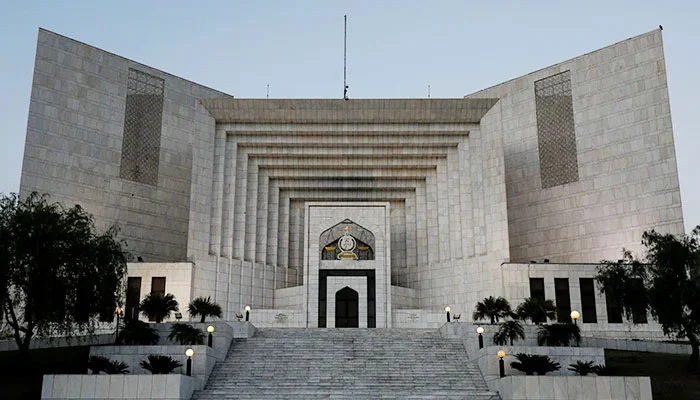The Supreme Court of Pakistan has issued a significant ruling regarding the National Accountability Bureau (NAB) Trameme case, effectively postponing its verdict as a response to an application filed by Farooq H. Naek, a senior advocate. In a decisive move, the Supreme Court has conditionally linked the outcome of the NAB Trameme case with the comprehensive legislation under the Prevention of Electronic Crimes Act.
The court’s decision to delay the verdict has sent ripples throughout Pakistan’s political and legal landscape, affecting not only the NAB Trameme case but also the process by which cases will be adjudicated in the future. This ruling is a response to growing concerns about the potential misuse of electronic evidence in legal proceedings and the need for well-defined legal parameters governing such cases.
Understandably, the legal community and the political sphere are closely watching this development. The NAB Trameme case has been a focal point of political and legal debates, with its implications extending far beyond the individuals involved in the case.
The Supreme Court’s directive specifically addresses concerns regarding the procedural framework through which electronic evidence is presented and evaluated in court. This sets a precedent that cases of a similar nature will be subject to stringent legal scrutiny in the future. The court’s decision acknowledges the evolving nature of technology and the need for legal standards that safeguard the rights and privacy of individuals while ensuring justice is served.
In a broader context, the Supreme Court’s ruling reflects a commitment to upholding justice while adapting to the challenges posed by modern technology. Electronic evidence, including digital documents, emails, text messages, and other electronic data, has become an integral part of many legal cases. However, the admissibility and handling of such evidence have raised critical questions about the protection of individual rights, the maintenance of privacy, and the avoidance of miscarriages of justice.
The postponement of the NAB Trameme case’s verdict demonstrates the Supreme Court’s resolve to ensure that justice is served without compromising the principles that underpin the legal system. The comprehensive legislative framework under the Prevention of Electronic Crimes Act aims to strike a balance between utilizing electronic evidence effectively and safeguarding individual rights.
The Supreme Court’s directive is a reminder that Pakistan’s legal system is dynamic and adaptive. It recognizes the need to respond to emerging challenges and evolving technology. In this particular case, it means that the verdict in the NAB Trameme case will be contingent on the legal framework governing electronic evidence, making it a watershed moment in the country’s legal history.
During the proceedings, Chief Justice of Pakistan, Justice Gulzar Ahmed, highlighted the importance of reviewing and assessing the legislative framework to determine how the admissibility of electronic evidence should be handled. This approach reflects the judiciary’s dedication to addressing any shortcomings in the legal process comprehensively.
Justice Gulzar Ahmed emphasized that the Trameme cases do not nullify the NAB’s mission, stating that only the form has changed, not the essence. He made it clear that the current ruling does not exonerate the accused from the allegations they face.
The legal community is now awaiting a clear directive from the Supreme Court on the framework for the third Trameme case, which had been declared unconstitutional without a comprehensive assessment of the first and second Trameme cases. The clarity of these guidelines will be vital for future legal proceedings and will determine how electronic evidence is treated within the bounds of the law.
The Supreme Court’s decision to postpone the verdict in the NAB Trameme case pending the detailed legislation under the Prevention of Electronic Crimes Act demonstrates a commitment to upholding justice while responding to the challenges posed by modern technology. This ruling sets a precedent for the treatment of electronic evidence in future cases, acknowledging the need to strike a balance between utilizing technology effectively and safeguarding individual rights and privacy. The legal community and the public will be closely watching the development of this comprehensive legislative framework, as it will impact the future of legal proceedings and electronic evidence in Pakistan.



